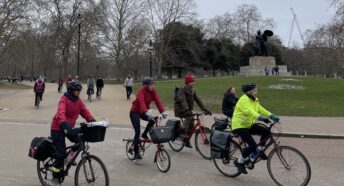Flight Blight! – the costs of aviation
Aviation is a major source of carbon emissions. And for many people, aircraft noise is a real problem. Research shows that aircraft noise is more ‘annoying’ than road or rail noise and we are becoming increasingly sensitive to it.
Aviation has significant social and environmental costs: carbon emissions and noise pollution are among the most important. Noise has a major impact on human health, as well as wildlife. Tolerance to aircraft noise is about more than the noise level. Other, non-acoustic, socio-psychological factors play a key role, including expectations. If you are ‘expecting’ peace and quiet, for example in the countryside, then noise is much more ‘annoying.’ People who ‘trust’ an airport find aircraft noise less ‘annoying.’ Other European countries monitor and report at lower noise threshold levels than the UK as this better reflects people’s experience of aircraft noise.
We are in the midst of a climate emergency. The Committee on Climate Change (CCC) provides Independent advice to government on building a low-carbon economy and preparing for climate change. It has recommended that the government plans for international aviation and shipping to achieve net-zero emissions by 2050 and that this should be reflected in the government’s forthcoming Aviation Strategy. The CCC states that it will be necessary to reduce actual emissions from the aviation sector. Until now, there has been a natural cap on aviation emissions due to runway capacity. If greater capacity is supported, then there will be unwanted growth in carbon emissions.
Download our latest research document for more information –







